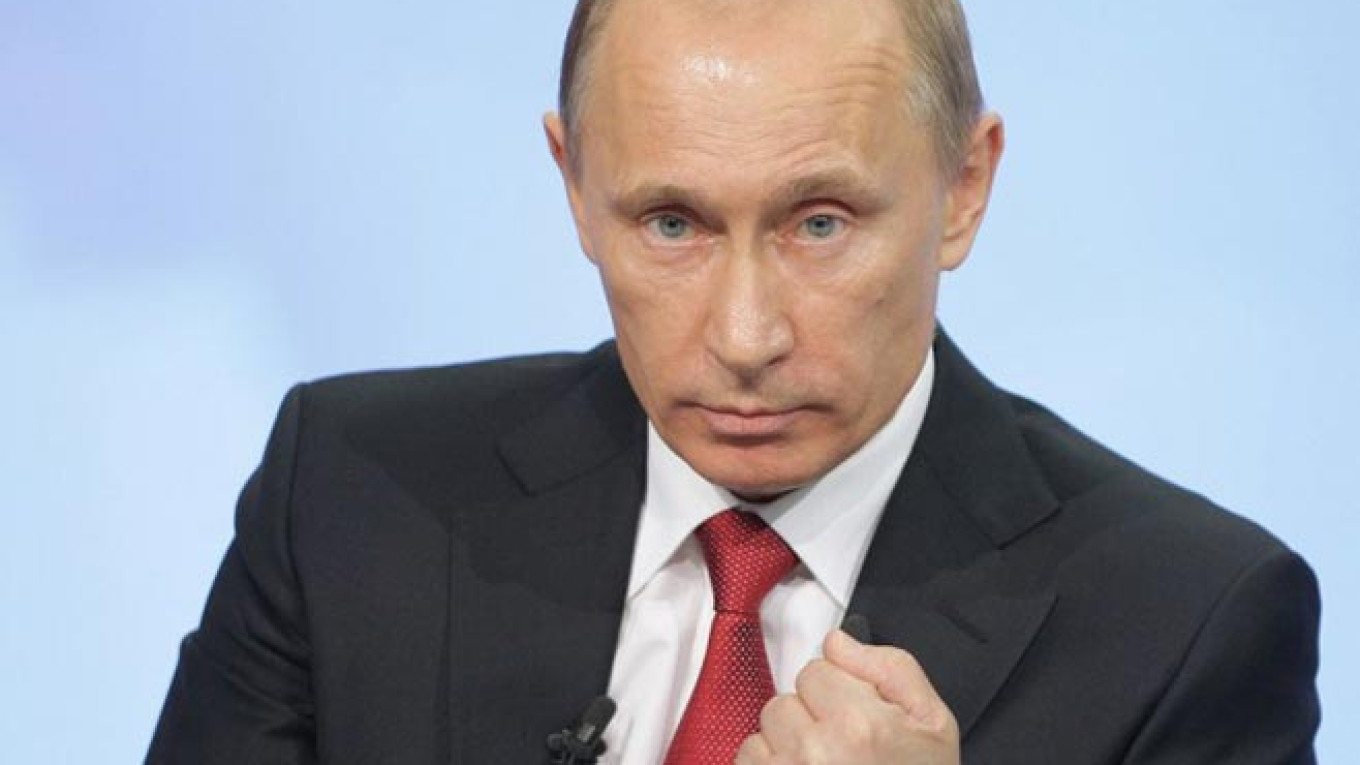In the wake of President Vladimir Putin's decision to annex Crimea, there is much talk in the West that Russia must pay a serious price. But the discussion of how to "punish" Russia largely overlooks the fact that Moscow would retaliate with penalties of its own if the West imposed sanctions on Russia.
Above all, Russia can use the gas weapon against Ukraine, which would cripple the Ukrainian economy and as well as cause widespread disruption across Europe.
In 2009, when Moscow shut down all gas deliveries to Ukraine, the disruption resulted in substantial shortages and rises in gas prices throughout Europe. Europe still imports 30 percent of its gas from Russia, and several Eastern European countries are close to 100 percent reliant on Russia.
A number of European countries are suffering severe economic problems, and as a whole European economies have performed significantly worse than that of the U.S. Therefore, a cutoff of Russian gas might well throw Europe back into a full recession.
In the Middle East, Russia could also significantly disrupt the P5+1 negotiations with Iran over Tehran's nuclear program. Putin could decide to move forward with the supply of advanced S-300 anti-aircraft missiles to Iran, or take concrete steps to assist Tehran's desire to build a second nuclear power plant.
Putin also possesses a "swing vote" in the Syrian crisis, and if he decides to double down on his support for Syrian President Bashar Assad, any chance for a cease-fire in Syria could be wrecked.
Afghanistan is another theater where Putin could strike a blow against Western — primarily U.S. — interests. The northern route that U.S forces use to ship equipment in and out of Afghanistan runs through Russia. Putin could shut this down at any time, thereby greatly complicating the withdrawal of U.S. military forces from Afghanistan.
Finally, Putin could ratchet up tensions in other states with substantial ethnic Russian populations, such as Estonia and Latvia. Last week, Moscow sent shudders through Estonia by complaining that its policy requiring its Russian population to speak Estonian was comparable to Ukraine's policy of limiting the use of Russian.
While Russia may no longer have the superpower status of the former Soviet Union, when it comes to sanctions Putin has plenty of cards of his own to play.
Josh Cohen is a former USAID project officer involved in managing economic reform projects in the former Soviet Union. He contributes to a number of foreign policy-focused media outlets and tweets at? @jkc_in_dc
A Message from The Moscow Times:
Dear readers,
We are facing unprecedented challenges. Russia's Prosecutor General's Office has designated The Moscow Times as an "undesirable" organization, criminalizing our work and putting our staff at risk of prosecution. This follows our earlier unjust labeling as a "foreign agent."
These actions are direct attempts to silence independent journalism in Russia. The authorities claim our work "discredits the decisions of the Russian leadership." We see things differently: we strive to provide accurate, unbiased reporting on Russia.
We, the journalists of The Moscow Times, refuse to be silenced. But to continue our work, we need your help.
Your support, no matter how small, makes a world of difference. If you can, please support us monthly starting from just $2. It's quick to set up, and every contribution makes a significant impact.
By supporting The Moscow Times, you're defending open, independent journalism in the face of repression. Thank you for standing with us.
Remind me later.


